Are Pigeons Vermin or Protected?
There are potentially millions of pigeons in London alone. A flapping, flying menace to most people, they represent an animal that many people don’t think very highly of due to their prevalence and their ability to flock in numbers. But are they vermin or a protected species?
Pigeons – descended from the rock dove – have become very comfortable around humans, and for many people, they’ve grown a little too comfortable. Unpredictable behaviour and an association with disease means we think of them as vermin, so this month at Pest Defence, we’re going to explore the topic in more detail.
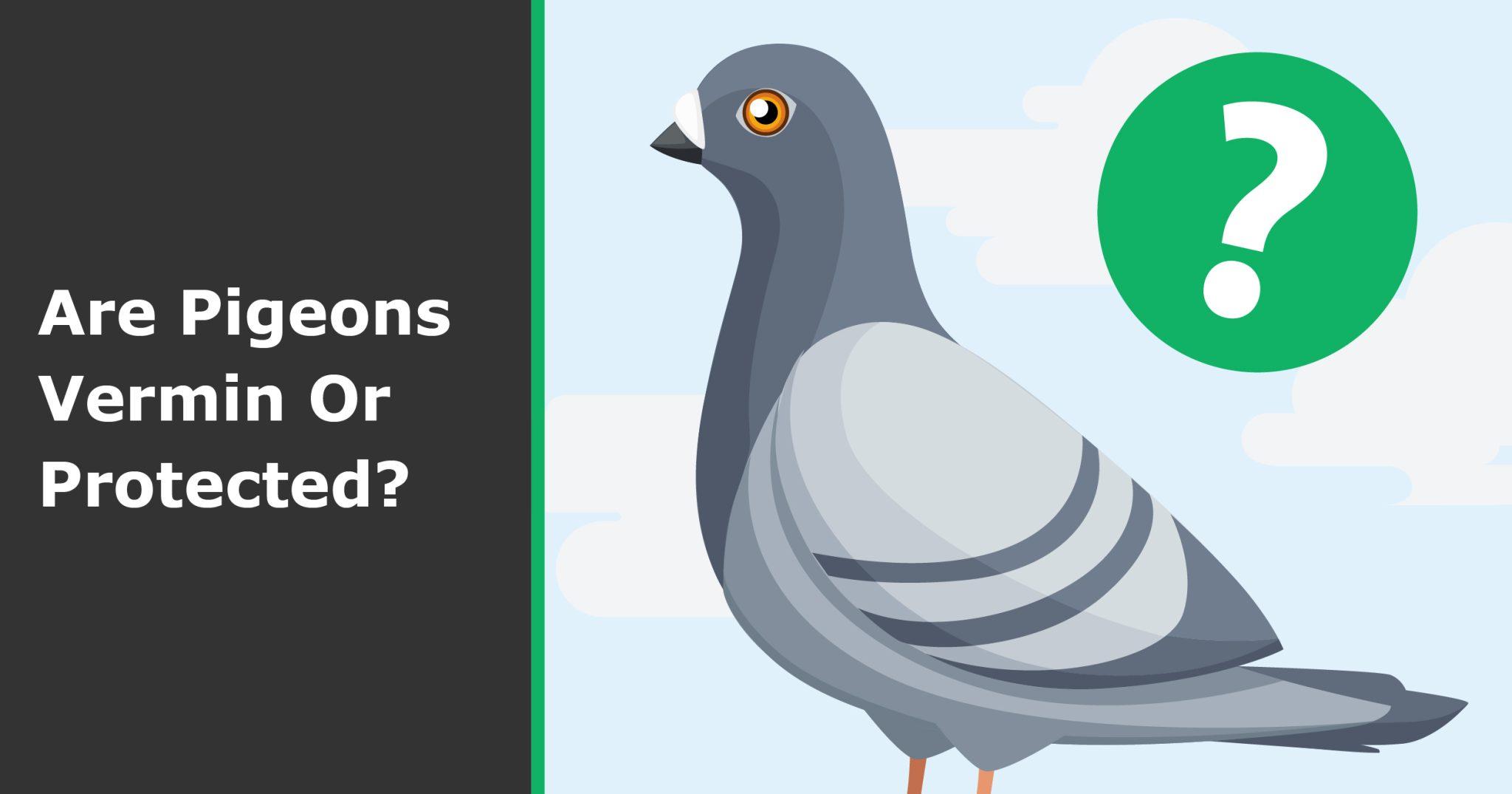
The definition of vermin
Vermin is not actually a scientific term. The word’s origin lies in the Latin word vermis which means ‘worm’ and was taken up in Old French as vermine. This word was used to describe harmful insects and animals that brought danger and disease to people. After anglicising the word, we still use it to this day to define unpleasant and harmful animals.
For that reason, we describe many animals and insects as vermin, such as:
- Rats
- Mice
- Cockroaches
- Foxes
- Termites
We do this because these creatures generally carry disease and bacteria due to either their own unhygienic lifestyles or the places they choose to dwell. They can also damage crops and property, and even pose physical danger to us as humans in some cases. It’s also what leads them to be referred to as pests.
Are pigeons vermin?
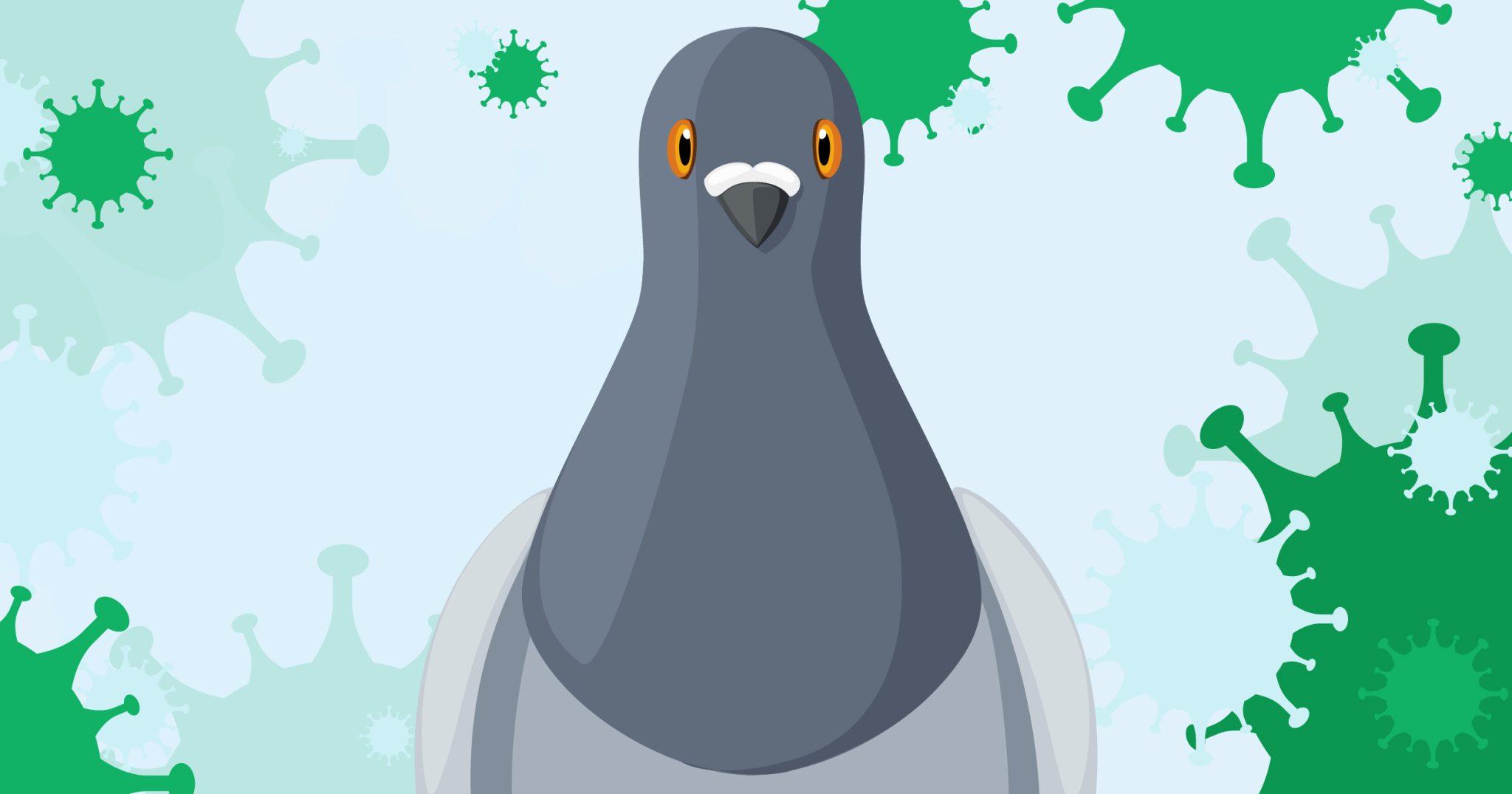
Yes, pigeons do fall under the term vermin. You may have heard them referred to as flying rats, which is enough to tell you that we put them in the same category.
This wasn’t always the case though — it’s actually our own fault as humans for drawing them into our cities. Our tall, stone buildings and abundance of food waste made urban areas appealing and comfortable for them.
However, given the fact that they are birds, as well as being vermin, they are also a protected species by law. It is not permitted to destroy or damage a nest or remove the eggs of a pigeon. The only exception to this is if they pose a risk to public health.
As you can see, it’s a slightly tricky topic, which is why it’s better to take preventative measures with professional pest controllers — something we’ll cover shortly.
Common problems with pigeons
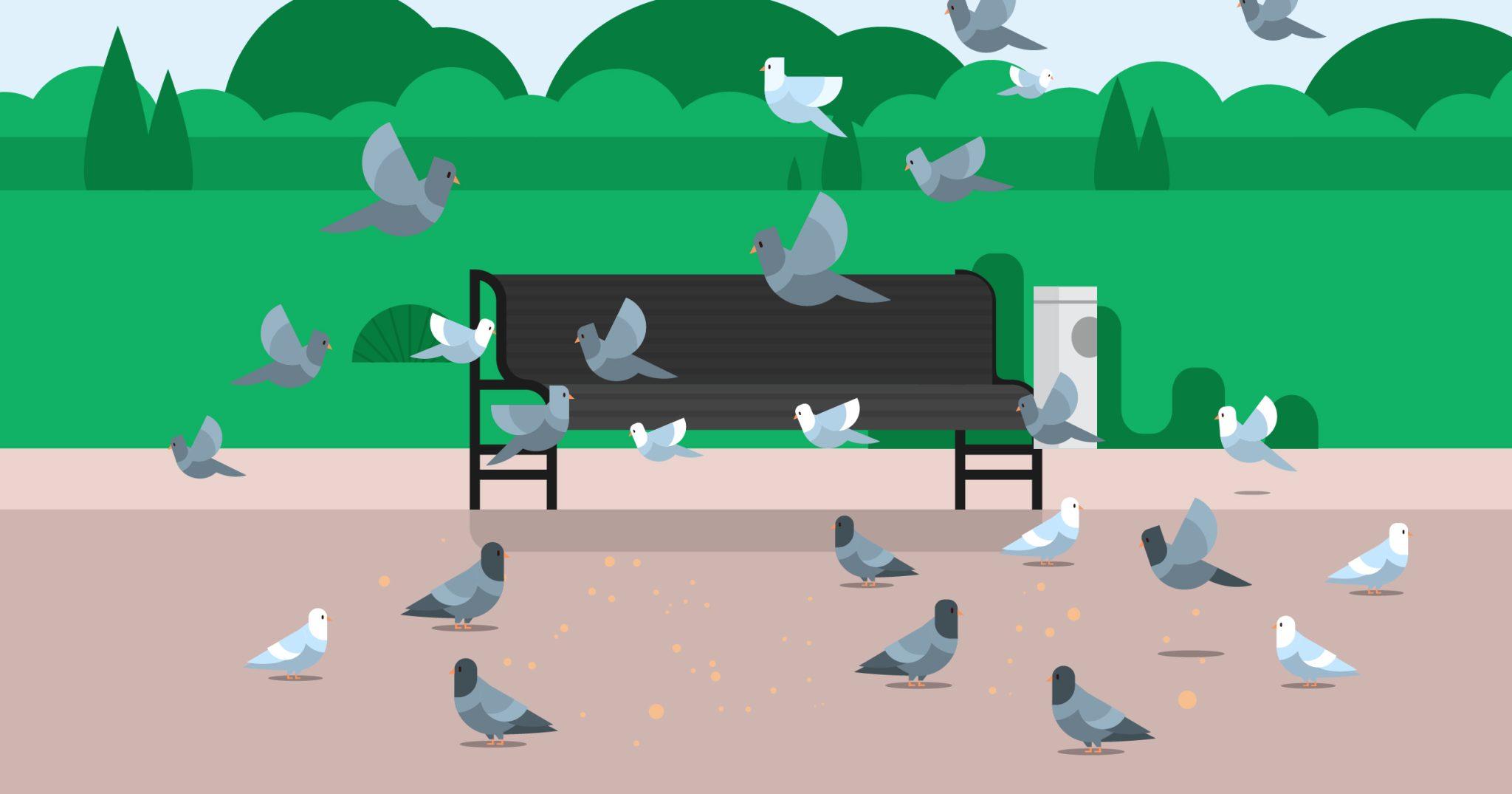
If pigeons are protected as birds, why do they pose such issues to us as humans?
Part of the problem is, as we’ve mentioned, how brave and comfortable they’ve become getting close to us and scavenging due to our own behaviour. But here are some of the problems pigeons can cause for businesses and homeowners:
- Diseases – Modern pigeons now carry diseases like histoplasmosis, psittacosis and cryptococcosis. You can read more about this in our previous post.
- Property damage – In attempting to find nests high up on buildings, they can cause damage to roofs and feathers can block drains. We’ll cover more about where they nest later in this piece.
- Pigeon guano – Pigeon droppings are unhygienic in and of themselves, but they also present a slip hazard and can cause damage to buildings. Our previous post covers more on the hazards of pigeon guano.
- Noise – In large numbers, pigeons can create a lot of noise, cooing, grunting and flapping, which can be disruptive for some businesses and homeowners.
How can I prevent pigeons?
Because pigeons are protected under the Wildlife and Countryside Act 1981, it’s always better to stay ahead of a pigeon pest problem. As professional pest control experts, at Pest Defence, we can offer the following options to prevent pigeons:
- Electric deterrents
- Chemical repellents
- Pigeon netting
- Pigeon spikes
- Anti-pigeon wires
These present a variety of techniques to keep your premises free from pigeons. We also offer pigeon dropping removal services if your building or site has been blighted with guano.
To keep pigeons away from your property in general, we recommend ensuring all waste is securely stored and that your home or business is kept tidy and clean. This will mean there is less chance of them calling your building home, as it doesn’t present a safe, easy base for them to populate.
Where do pigeons build nests?
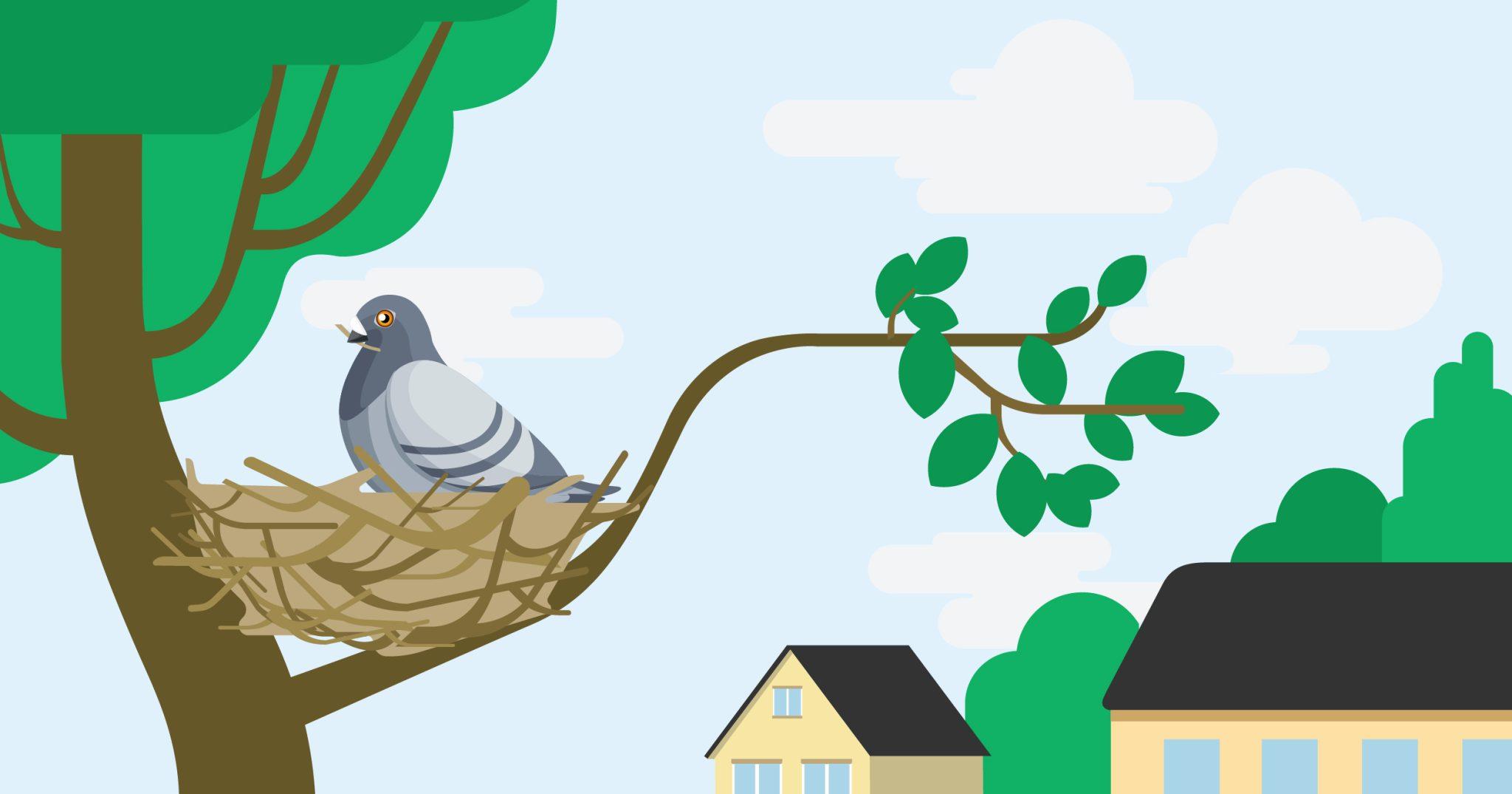
To help you understand more about pigeons, the issues they can cause and where to look out for them, here are the common places they build nests:
- On building ledges and window sills
- On heating and ventilation apparatus
- Under bridges
- Inside roofs and lofts
- Under solar panels
- In roof guttering
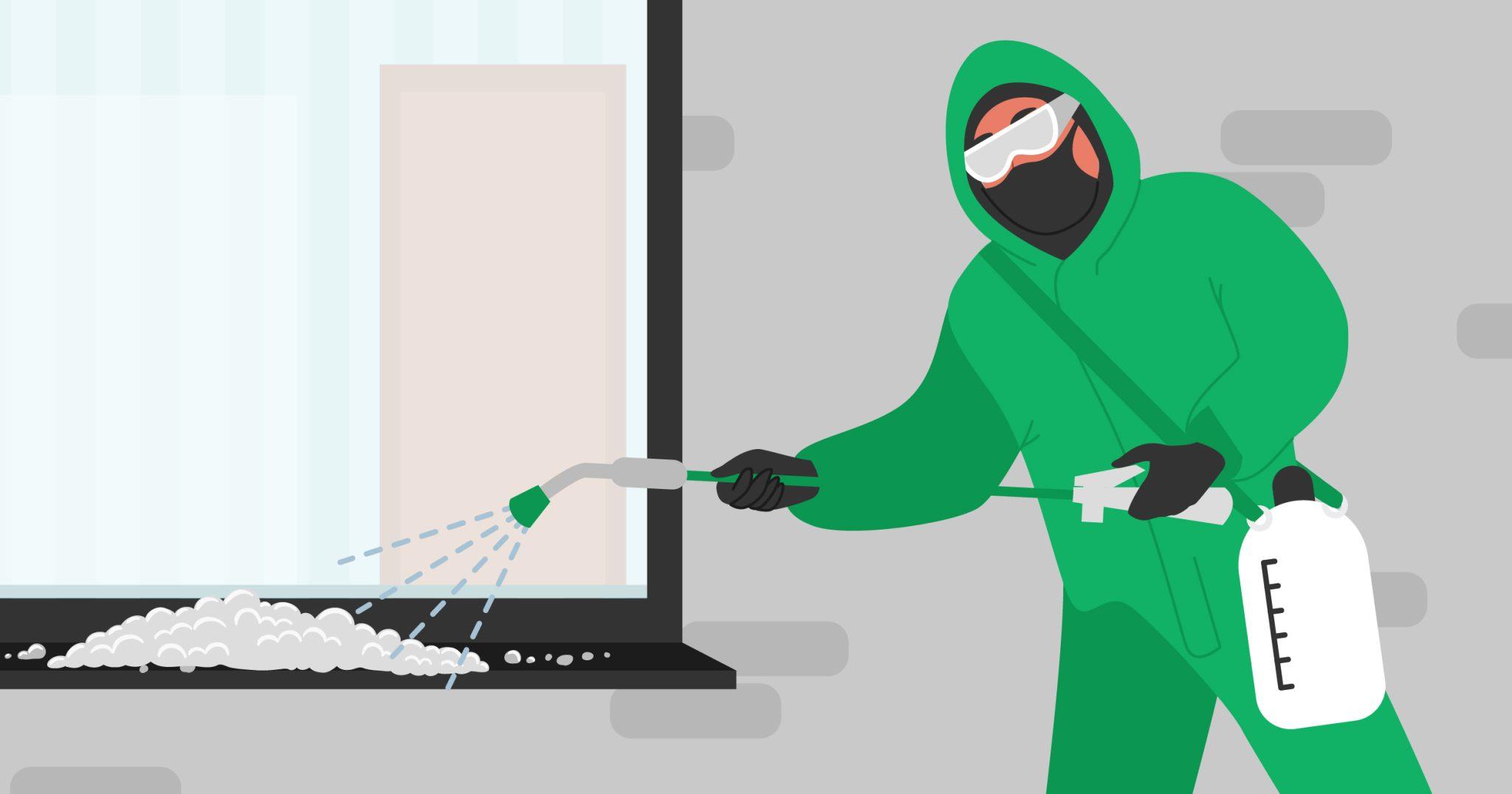
Ultimately, pigeons want somewhere sheltered and safe within easy reach of food sources. That means they’re particularly fond of our spaces, keeping out of the way at heights when sleeping, nesting and rearing young.
Experiencing pigeon problems in Surrey and London? Call us today and let our special bird control experts assist you in eliminating the risks pigeons pose.


